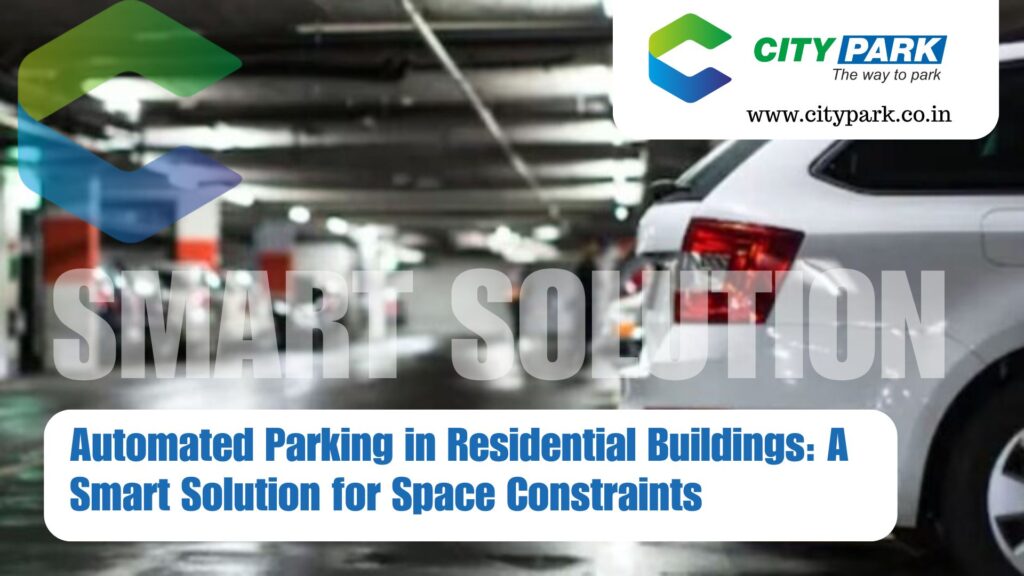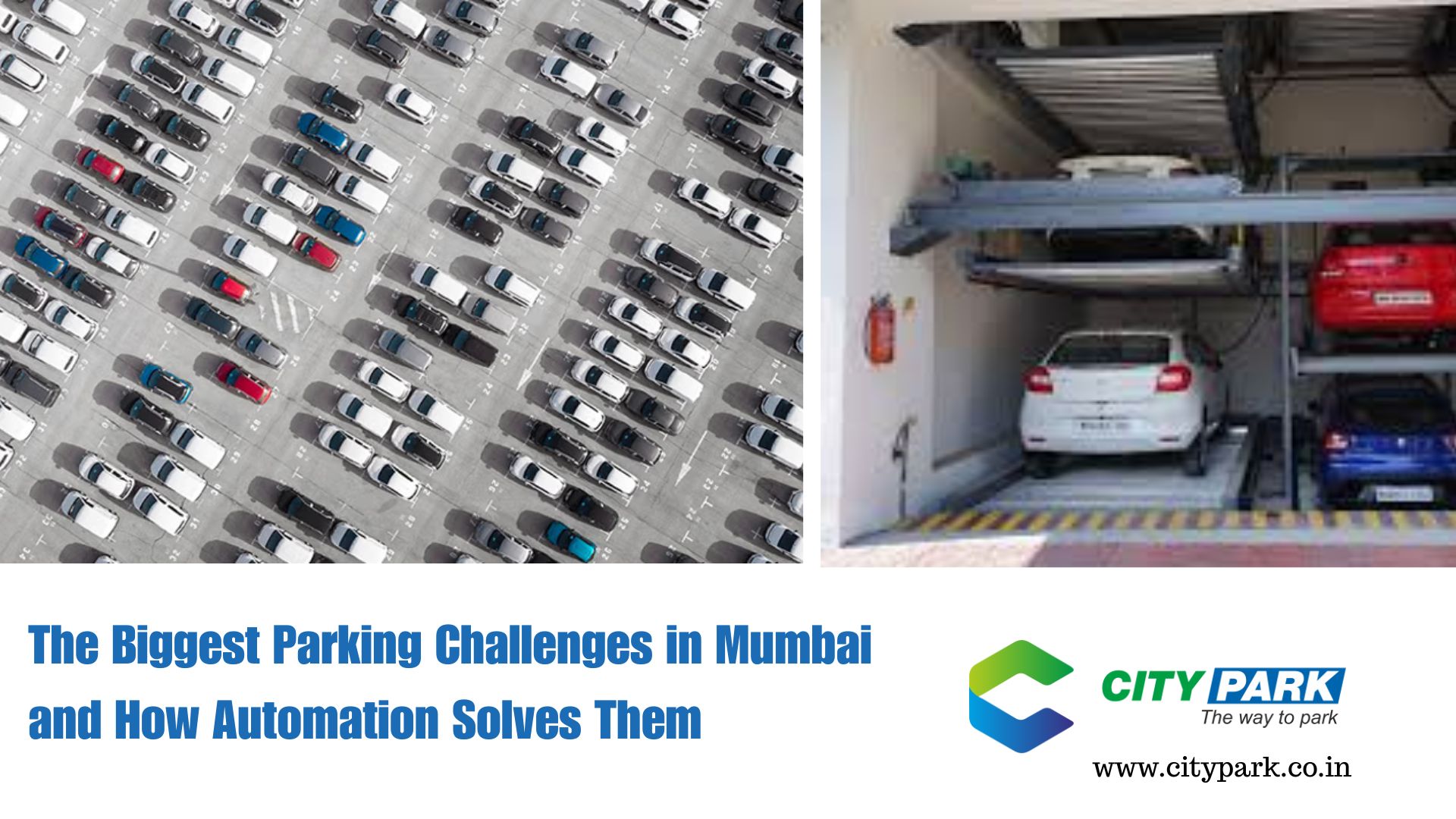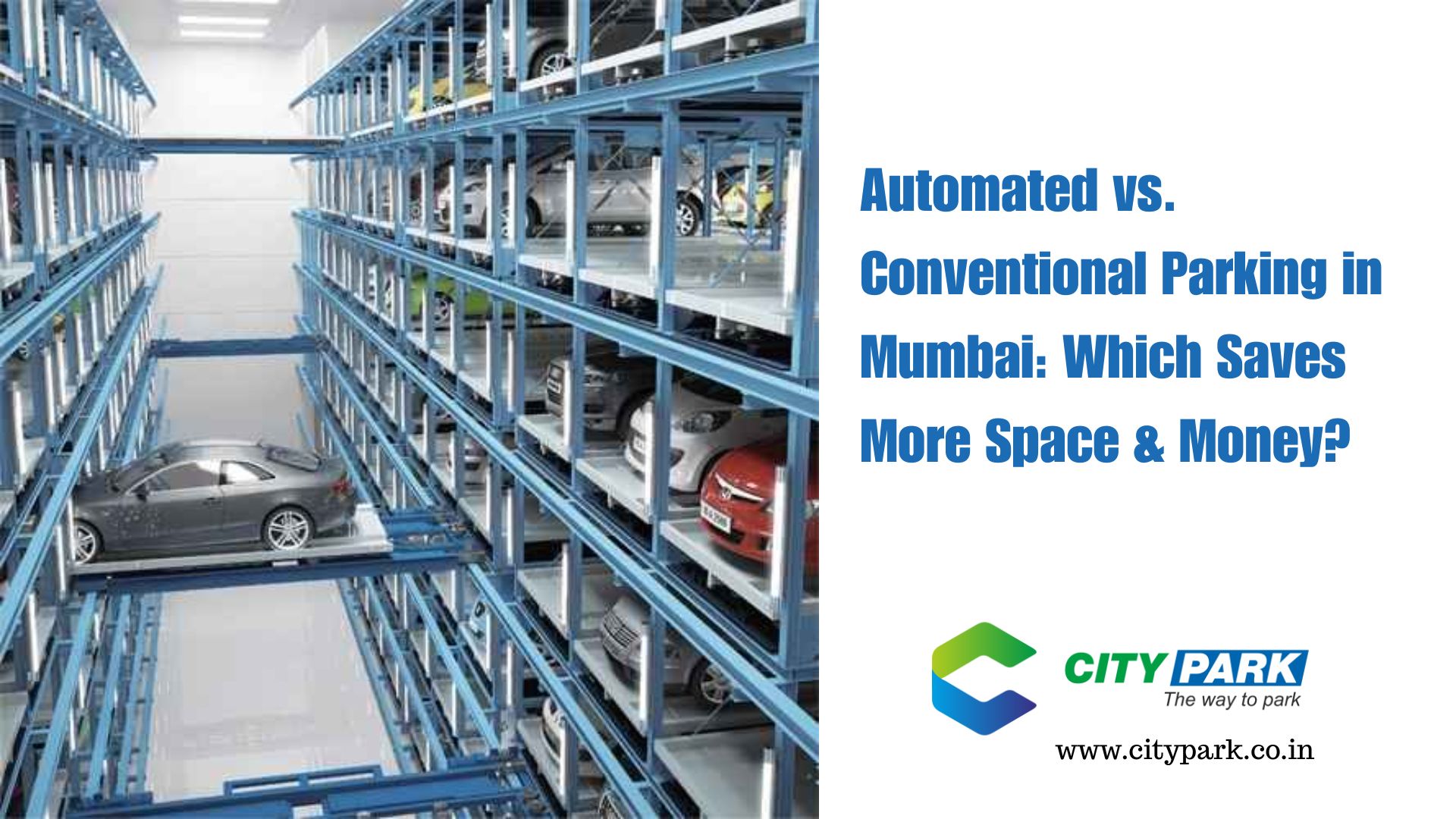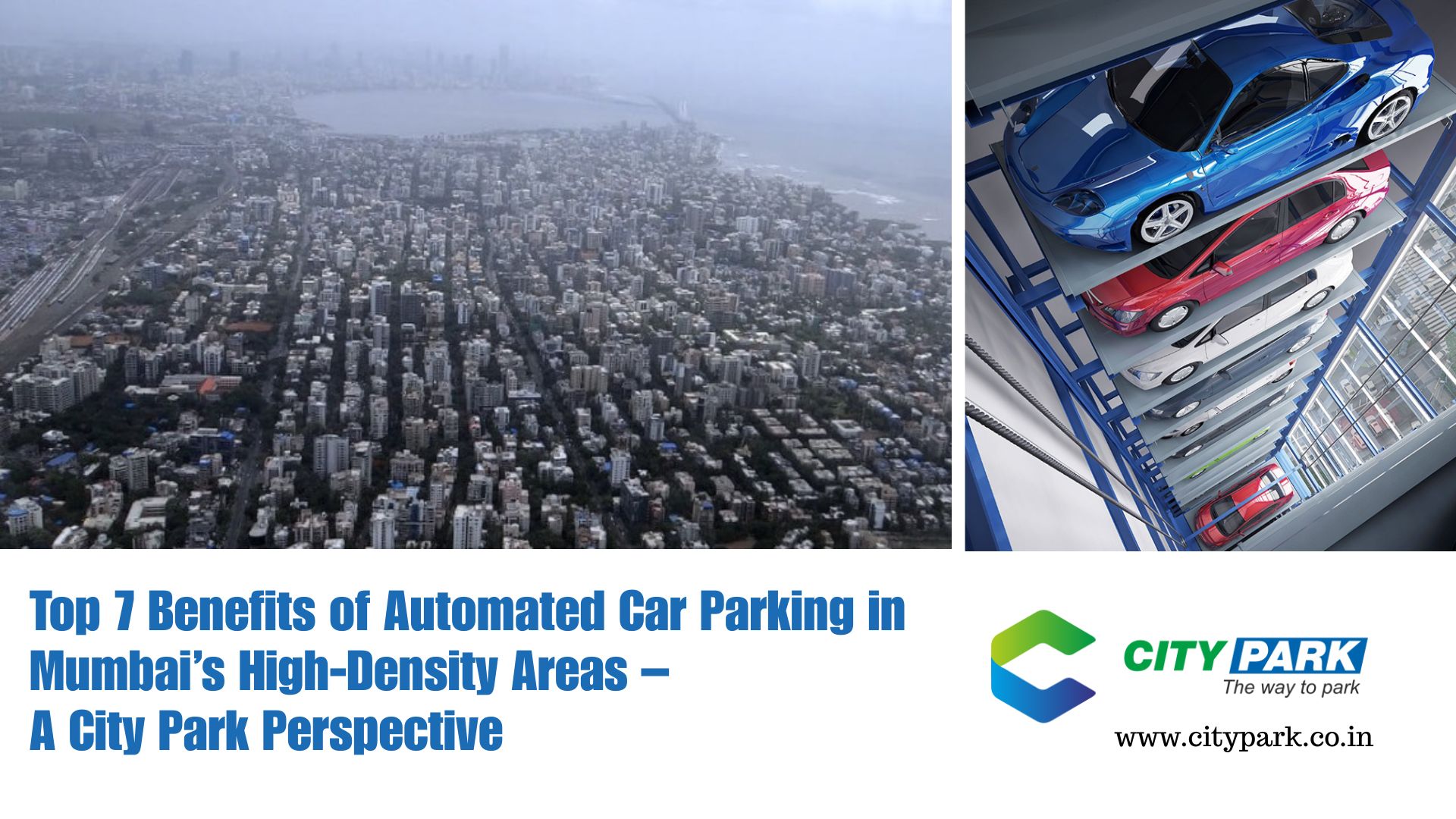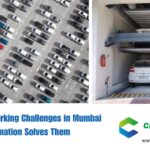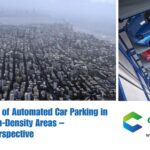Urban living is transforming faster than ever. In cities worldwide, high-rise apartments and luxury condominiums are redefining how people work, relax, and commute. Yet one challenge remains stubbornly persistent: parking.
As available land shrinks and property prices skyrocket, developers and residents alike are grappling with space constraints. Traditional parking garages with wide ramps, large drive aisles, and sprawling footprints no longer fit the vision of smart, efficient residential development.
Enter automated parking systems—a modern, space-saving, and technology-driven solution that is rapidly gaining favor in India’s urban centers.
Since 2014, City Park has been at the forefront of designing and installing these systems. Our experience proves that automated parking not only solves space issues but also increases property value, attracts tech-savvy buyers, and enhances sustainability.
In this article, we’ll explore why automated parking in residential buildings is becoming the gold standard for modern urban design.
The Challenge of Parking in High-Rise Living
In dense cities like Mumbai, Delhi, Bangalore, and Pune, developers face multiple constraints:
- Limited land availability: Suitable plots are scarce and expensive.
- High Floor Space Index (FSI) utilization: Every square foot must be used efficiently to maximize ROI.
- Growing car ownership: Affluent urban families increasingly own multiple vehicles.
- Rising buyer expectations: Modern residents expect convenience, safety, and premium amenities.
Traditional parking methods simply can’t keep pace. Multilevel ramp garages consume vast amounts of floor space, limit design flexibility, and reduce the area available for recreational zones or green spaces.
A developer’s dilemma often comes down to this: How do you provide adequate parking without compromising on salable area or aesthetics?
What is Automated Parking?
An automated parking system (APS) uses mechanical equipment—such as lifts, conveyors, turntables, and shuttles—to move vehicles from an entry point to a designated parking slot, all without any human intervention.
How It Works:
- The driver stops the car in a transfer cabin or entry bay.
- After exiting the vehicle and confirming parking, the system lifts the car vertically and horizontally.
- The car is stored in a dense grid of parking slots.
- To retrieve the car, residents simply use a touchscreen, mobile app, or smart card. The system delivers the car back to the entry bay within a few minutes.
- Space Optimization: The Most Compelling Advantage
Perhaps the single greatest benefit of automated parking in residential buildings is the dramatic reduction in the space required per car.
Traditional Parking:
- Requires drive aisles, ramps, turning circles, and pedestrian access.
- Typically consumes 30–50 square meters per car.
Automated Parking:
- No ramps or drive aisles are needed.
- Cars are stored nose-to-tail and side-by-side with minimal clearance.
- Typically requires only 12–18 square meters per car.
Result:
- You can park up to twice as many vehicles in the same footprint.
- Smaller plots can still achieve required parking capacities.
- Freed-up space can be used for:
- Landscaped gardens.
- Play areas.
- Fitness amenities.
- Additional flats or commercial units.
In dense urban projects, these savings translate into higher project profitability and more attractive communal spaces.
- Enhanced Property Value and Market Appeal
Today’s homebuyers and investors are increasingly sophisticated. They evaluate not just location and floor plans but also the quality and innovation of amenities.
Automated parking delivers a clear edge in this regard:
- Prestige and Differentiation: Buyers perceive automated parking as a premium feature.
- Convenience: No more driving in circles to find a spot or squeezing into tight spaces.
- Safety and Security: Vehicles are protected from theft, vandalism, and accidental damage.
- Future-Proofing: As cities become smarter, automated parking positions your property ahead of the curve.
Developer Insight:
In a 2022 survey by Knight Frank India, over 68% of high-end homebuyers ranked innovative parking solutions as an important factor influencing their purchase decision.
By integrating an automated parking system, developers can justify higher pricing and achieve faster sales velocity.
- A Magnet for Tech-Savvy Residents
Automated parking appeals strongly to a new generation of homeowners who value:
- Smart home integration.
- Touchless experiences.
- Digital convenience.
Imagine this scenario:
- A resident leaves for work, triggering a mobile app request.
- While they get ready, the system retrieves their car automatically.
- By the time they reach the lobby, the car is waiting—engine off, safe, and ready to go.
This seamless, high-tech experience resonates with millennials and Gen Z buyers who expect technology to simplify daily life.
- Improved Safety and Security
Parking areas are frequent targets for theft, vandalism, and even personal assault. Automated parking offers:
- Controlled access: Only authorized users can retrieve vehicles.
- No pedestrian movement within the storage area.
- Reduced risk of accidents: No cars maneuvering around corners or reversing unpredictably.
From an insurance perspective, this also translates into lower risk exposure, potentially reducing premiums for the building’s management.
- Sustainability and Environmental Benefits
Automated parking is also the greener choice:
- Reduced idling: No need to drive around searching for parking.
- Lower energy consumption: No large ventilation fans are required, and lighting is minimal in unoccupied storage areas.
- Smaller construction footprint: Less concrete and steel mean reduced embodied carbon.
A study by the European Parking Association found that automated parking systems can reduce CO₂ emissions by up to 60% per parked vehicle compared to traditional garages.
With more developers pursuing IGBC or LEED green building certifications, integrating an automated parking system is an effective way to boost environmental credentials.
- Customization and Scalability
One common myth is that automated parking is a one-size-fits-all solution. In reality, systems can be customized to the needs of each project:
- Puzzle Systems: Ideal for medium-sized residential projects with limited headroom.
- Tower Systems: Perfect for high-rise developments, stacking dozens of cars vertically.
- Shuttle Systems: Suitable for large complexes requiring higher throughput.
At City Park, our professional engineers assess:
- Site dimensions.
- Traffic flow.
- User profiles.
We then design a system tailored to your project’s unique requirements, ensuring optimal performance and aesthetics.
- Streamlined Operations and Maintenance
Many developers worry about the complexity of maintaining advanced mechanical systems. This is where choosing the right partner matters.
City Park Advantage:
- Experienced team: Since 2014, we have installed and serviced systems across India.
- Professional engineers: Our experts ensure installation meets the highest standards.
- 24x7x365 helpline: Residents and facility managers can reach us anytime for support.
- Preventive maintenance: Regular inspections keep the system running smoothly, avoiding downtime.
In practice, automated parking often requires less staffing and fewer resources to operate compared to traditional valet or attended parking systems.
- Financial Considerations: Is It Worth the Investment?
While automated parking has higher upfront costs, the long-term value is substantial.
Factors to Consider:
- Land Savings: Higher density parking frees up valuable space for revenue-generating uses.
- Premium Pricing: Buyers are willing to pay more for innovative amenities.
- Operational Efficiency: Lower staffing and energy costs over time.
- Future-Proofing: Systems can be adapted to support EV charging and smart city integrations.
Case Study:
A premium condominium project in Pune integrated a 100-car automated parking tower. The freed-up land allowed the addition of two more penthouses, each sold for ₹3 crore—more than covering the incremental cost of the parking system.
Conclusion: Automated Parking—A Smart Solution for Today’s Residential Developments
In the race to build modern, sustainable, and profitable residential projects, automated parking has emerged as an essential strategy.
Here’s why developers across India are making the switch:
✅ Space Efficiency: Park twice as many vehicles in the same footprint.
✅ Market Appeal: Differentiate your project with cutting-edge amenities.
✅ Safety and Security: Keep residents and their vehicles safer.
✅ Sustainability: Reduce emissions, energy consumption, and construction impact.
✅ Convenience: Deliver a seamless experience for tech-savvy homeowners.
✅ Financial Upside: Free up salable space and increase property value.
At City Park, we combine deep expertise with a commitment to innovation. Since 2014, our systems have helped developers reimagine parking—from boutique buildings to large-scale residential complexes.
Ready to Transform Your Next Project?
Whether you’re planning a high-rise condominium or a premium apartment complex, City Park can help you integrate a customized, space-saving automated parking system that delights residents and drives value.
Contact Us Today:
🌐 Website: www.citypark.co.in
📞 Helpline: 24x7x365 support at your fingertips
👷 Professional Engineers: Design, installation, and maintenance you can trust
Make parking smarter, safer, and more sustainable—with City Park.
